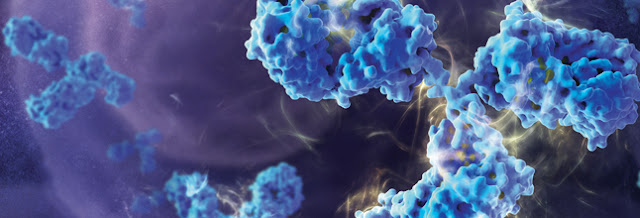Monoclonal Antibodies vs. Traditional Therapies: The Advantages and Applications
 |
| Monoclonal Antibody Therapy |
In the realm of medicine, the emergence of monoclonal
antibodies (mAbs) has revolutionized the way we approach disease treatment.
These engineered proteins, designed to target specific antigens, have proven to
be a game-changer in comparison to traditional therapies. We will explore the
advantages and applications of mAbs, highlighting their significant impact on
healthcare.
- Enhanced
Targeting: Unlike traditional therapies that often exhibit broad effects
on the body, monoclonal antibodies offer enhanced targeting capabilities.
By precisely binding to specific antigens on cells, they can selectively
neutralize disease-causing agents while sparing healthy cells. This level
of precision minimizes unwanted side effects and improves treatment
outcomes, especially in conditions where specificity is crucial, such as
cancer or autoimmune disorders.
- Customizability:
mAbs can be customized and engineered to suit different therapeutic
purposes. Through genetic engineering techniques, researchers can modify
the antibody structure to enhance its efficacy or alter its properties.
This flexibility allows for the creation of therapeutic antibodies with
improved potency, prolonged half-life, or even the ability to stimulate
the immune system's response against cancer cells. Traditional therapies
often lack this level of customization, making mAbs a powerful tool in
personalized medicine.
According to Coherent Market Insights, The global
monoclonal antibody therapeutics market is estimated to be valued at US$ 205,385.6 million in 2023 and is expected to exhibit
a CAGR of 12.69% during the forecast
period (2023-2030).
- Lower
Toxicity: One notable advantage of mAbs is their lower toxicity compared
to traditional therapies. Conventional treatments such as chemotherapy or
radiation can cause significant damage to healthy tissues due to their
generalized effect. mAbs, on the other hand, are designed to specifically
target disease-related markers, minimizing off-target effects. This
targeted approach not only reduces toxicity but also improves patients'
quality of life during treatment.
- Broad
Range of Applications: mAbs have found applications across various medical
fields. They have proven effective in treating cancer, autoimmune
diseases, infectious diseases, and even cardiovascular conditions. In
cancer therapy, monoclonal antibodies can block signalling pathways or
deliver toxins directly to tumor cells, leading to improved outcomes. In
autoimmune disorders, they can modulate the immune response and reduce
inflammation. Moreover, mAbs have been instrumental in developing
therapeutic options against viruses such as COVID-19, demonstrating their
versatility and potential in combating emerging diseases.
Monoclonal
antibodies offer distinct advantages over traditional therapies,
including enhanced targeting, customizability, lower toxicity, and a broad
range of applications. Their precision and versatility make them a promising
avenue in the future of medicine. As research and development in this field
continue to progress, we can anticipate even more breakthroughs and improved
patient outcomes.



Comments
Post a Comment